Waste Management
- Home
- Waste Management
WASTE MANAGEMENT
Solid waste management is a universal issue that matters to every single person in the world. In the most parts of the world, especially in low income countries, 90% of waste is openly dumped or burned in the landfills affecting the poor and the most vulnerable disproportionately. The poorly managed waste is clogging drains and causing urban floods, transmitting diseases, contaminating the oceans and escalating respiratory diseases arising out of burning. These lead to economic hindrance to the poor and the rich countries alike.
With the technical know how’s onboard, NACONS provides guidance about biodegradable and non-biodegradable waste management methods to the people as well as government and non-government organizations.
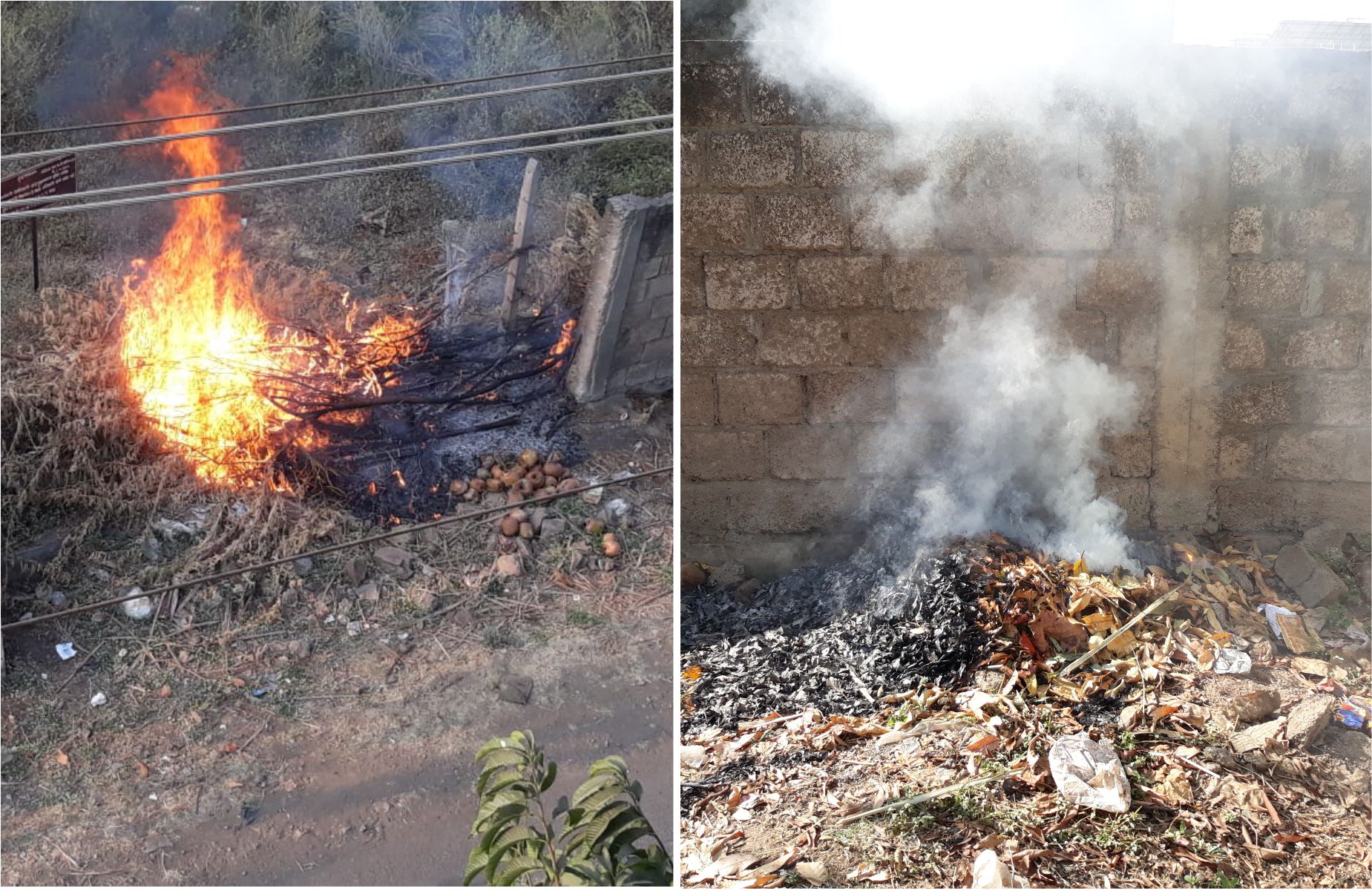
INAPPROPRIATE PRACTICES
Leaf litter burning, a conventional practice in India, causes environmental pollution, fire hazard and wastage of valuable organic matter that enriches the soil.

DRY LEAF LITTER
Fallen autumn leaves are actually not a litter, but it’s a precious organic matter recycled by nature. Composting of dry foliage breaks down its components into vital nutrients that enrich the soil. Natural composting is a very slow process. Hence we promote artificial composting which provides a good organic fertilizer for crops. We also use this foliage as a mulching material for our plantation projects.
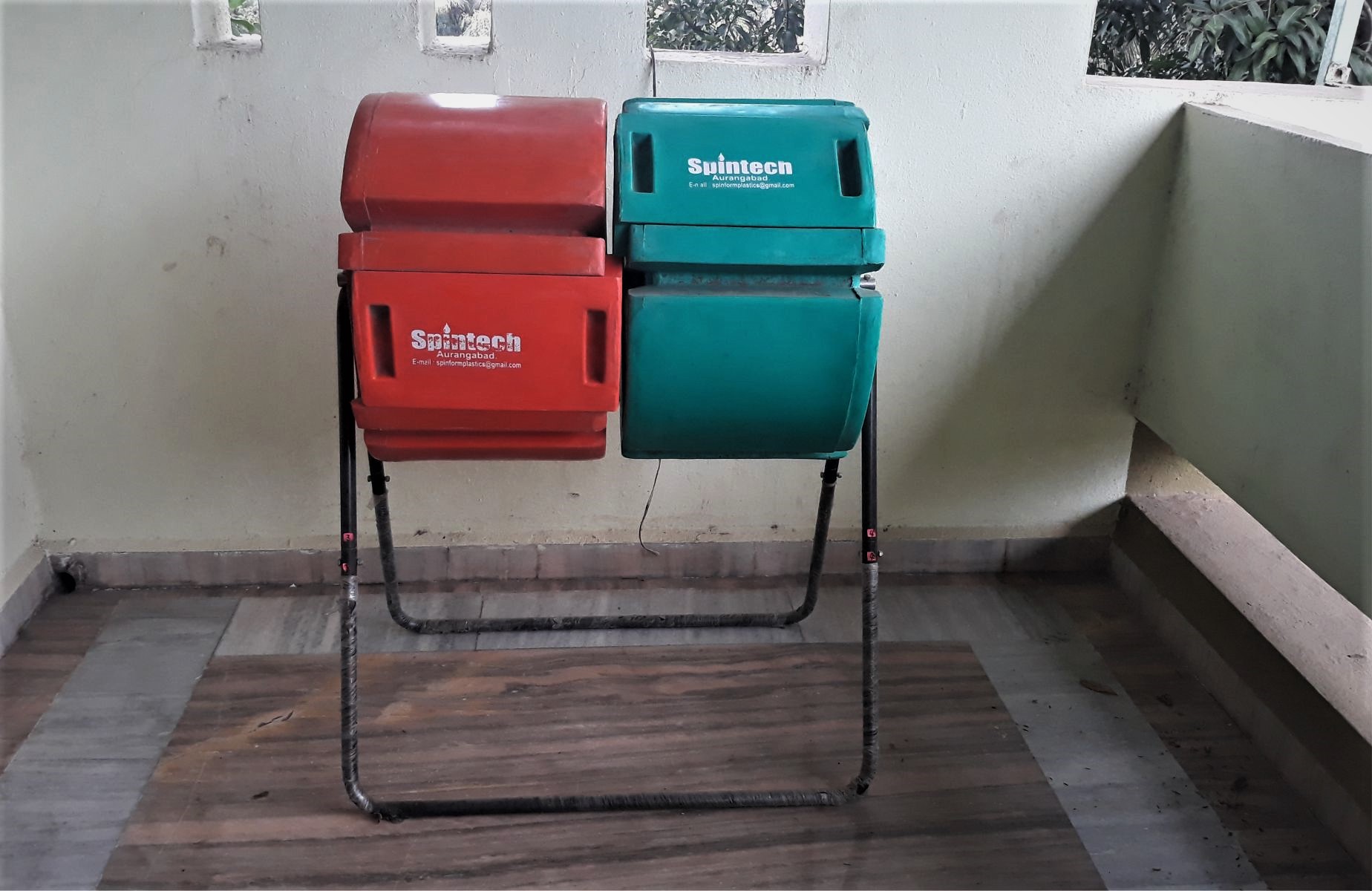
DOMESTIC COMPOSTING
We promote the use of innovations such as compost bins or compost tumbler for composting domestic kitchen waste.
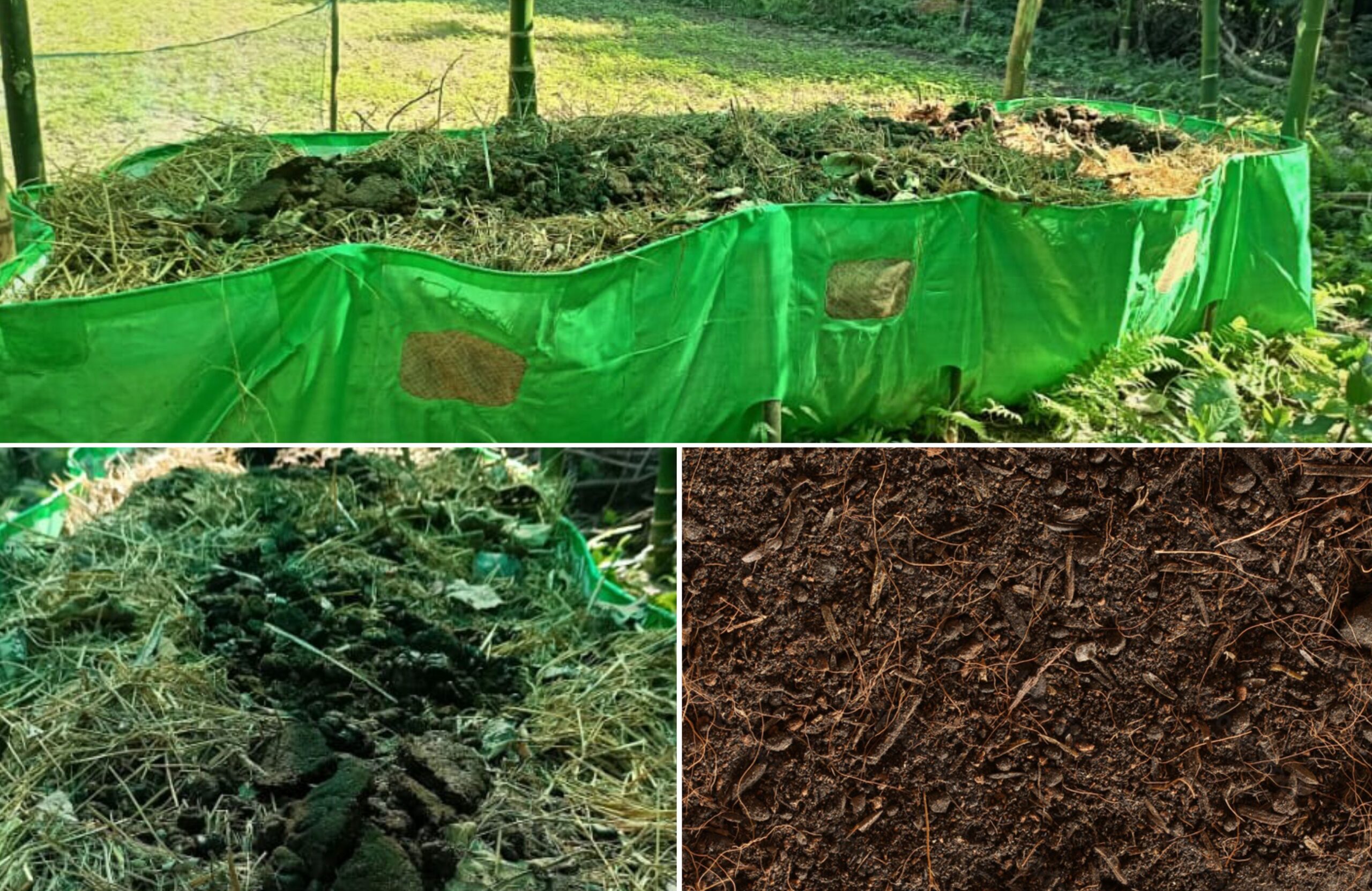
LARGE SCALE COMPOSTING
We guide farmers and Gardeners to make compost units for large scale composting of farm waste and leaf litter.
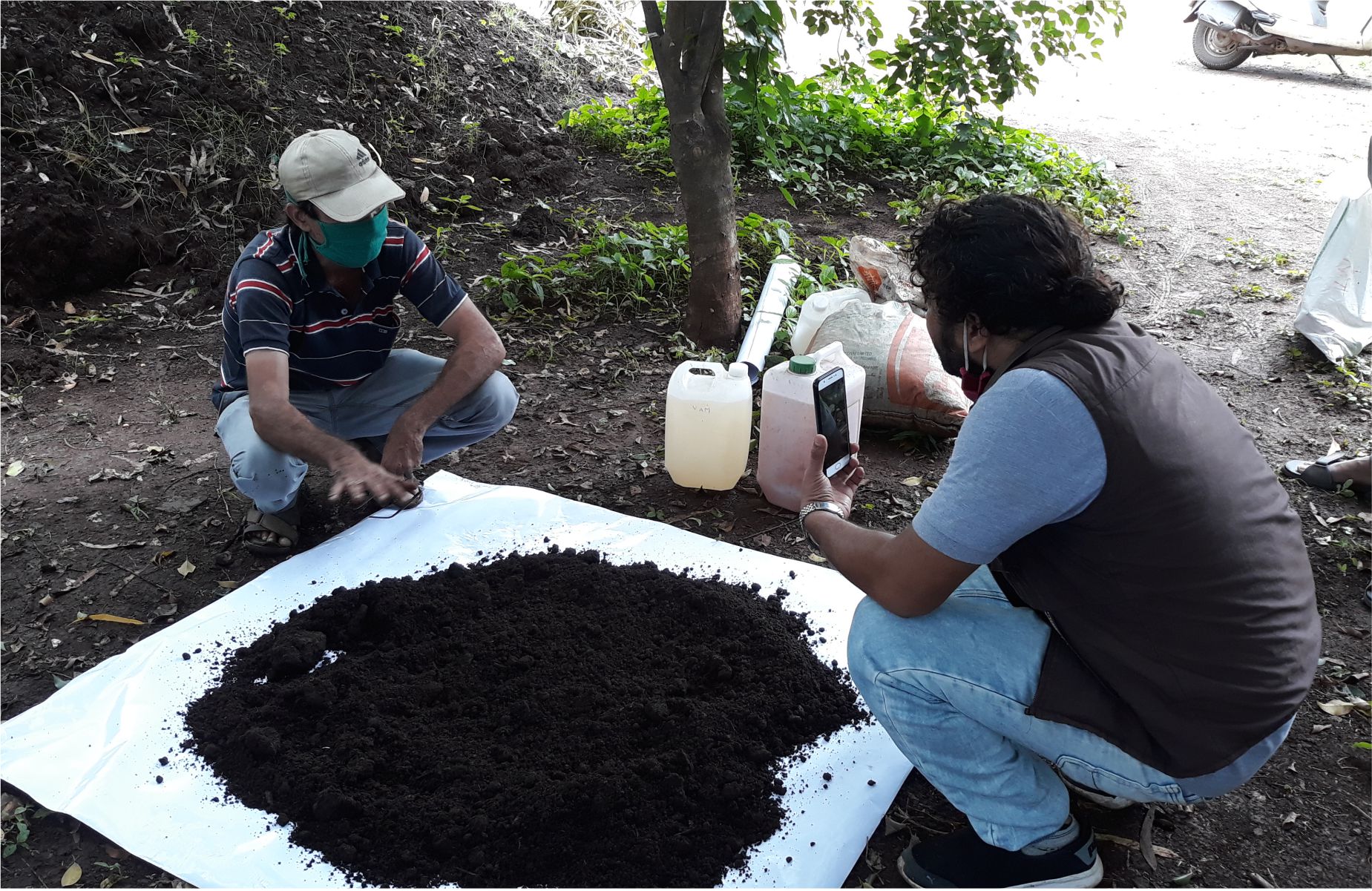
COMPOST ENRICHMENT
Organic compost from biodegradable waste can be made within just 30 days. It can be enriched further by adding some more useful microorganisms to it. These microbes help fix the atmospheric nitrogen, carbon and other essential micronutrients and improve the overall soil quality.
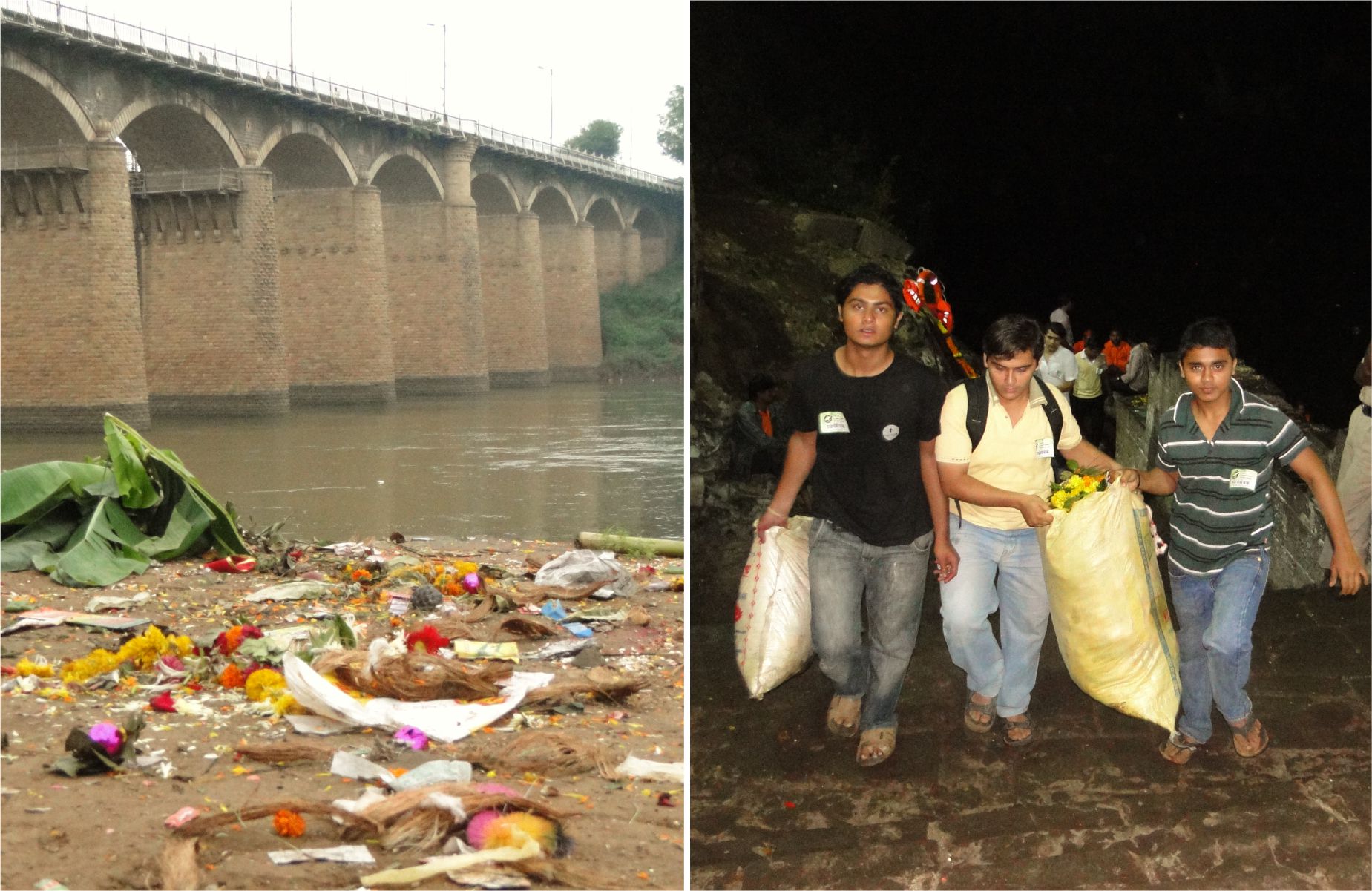
CEREMONIAL WASTE
Large quantities of flowers and leaves are used in Indian festivals for worships and decorations. It is discarded once the festival is over and thrown into natural water bodies like rivers and ponds. It is known as ‘Nirmalya’ in India. It then decomposes there and pollutes the water. Such decomposition also consumes oxygen dissolved in water and reduces oxygen availability to aquatic life. We create public awareness for discontinuation of this tradition and also collect this waste at actual locations.

GARBAGE AT TOURIST PLACES
Irresponsible tourists often discard plastic waste anywhere which not only pollutes the environment but also causes uglification of naturally beautiful tourist destinations. We create awareness about responsible tourism and also conduct cleanliness drives at tourist places.

PLASTIC WASTE
Plastic waste has become a global issue. Discarded plastic bottles, polythene bags can be seen scattered at all public places, especially in the developing countries. Plastic waste decomposes very slowly, releasing harmful chemical substances into soil which then seep through soil and pollute the groundwater as well as other natural water bodies. We frequently organize plastic waste collection drives at public places.

ELECTRONIC WASTE
In addition to Plastic waste, electronic waste has emerged as another major environmental issue in the last few decades. E-waste can be recycled. Therefore, we frequently participate in the E-waste collection drives organized by local government bodies.
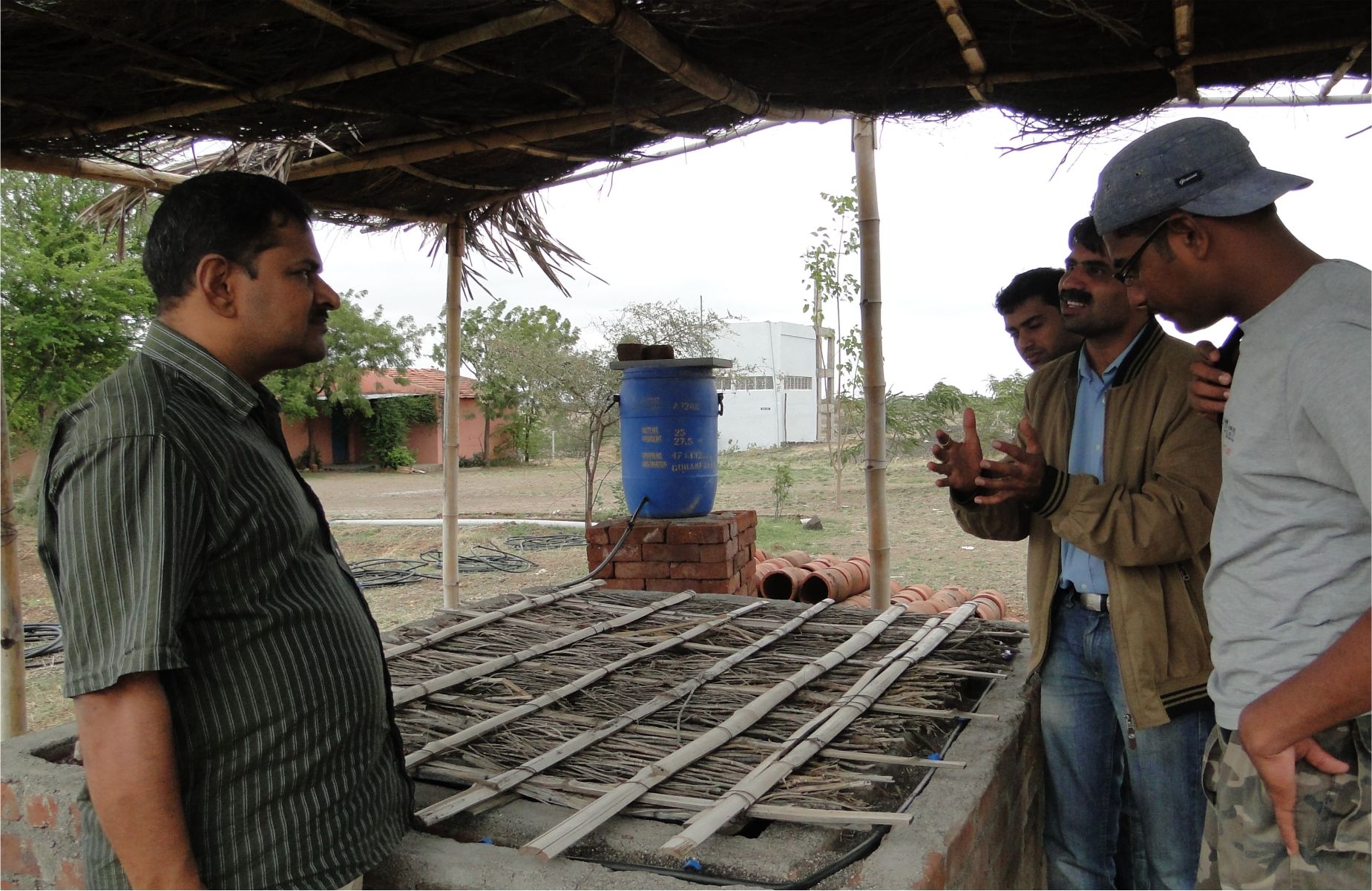
PUBLIC EDUCATION
Public education is the key to global human waste issue. We provide technical guidance for waste management to the people working with various governmental and non-governmental institutions.
